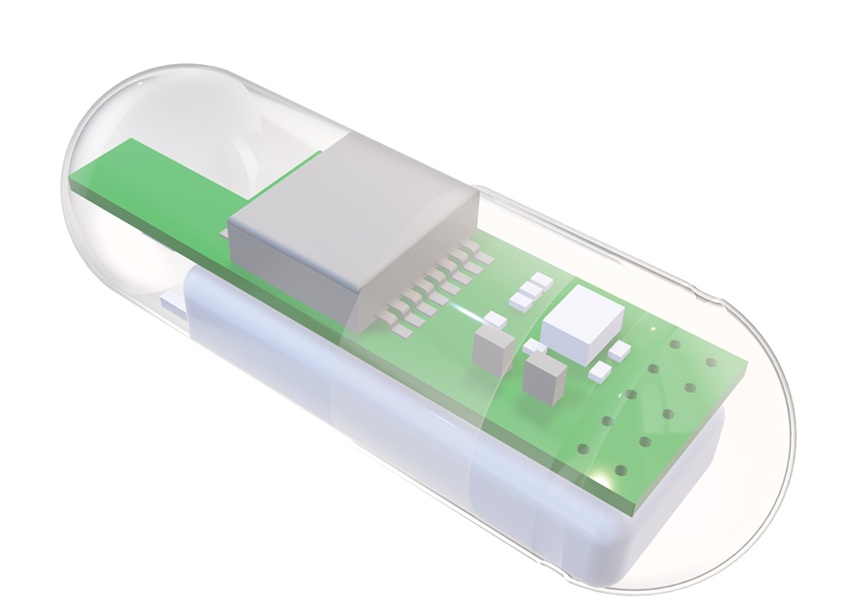Siemens Wins Major Dutch Healthcare IT contract
|
By HospiMedica International staff writers Posted on 14 Apr 2014 |
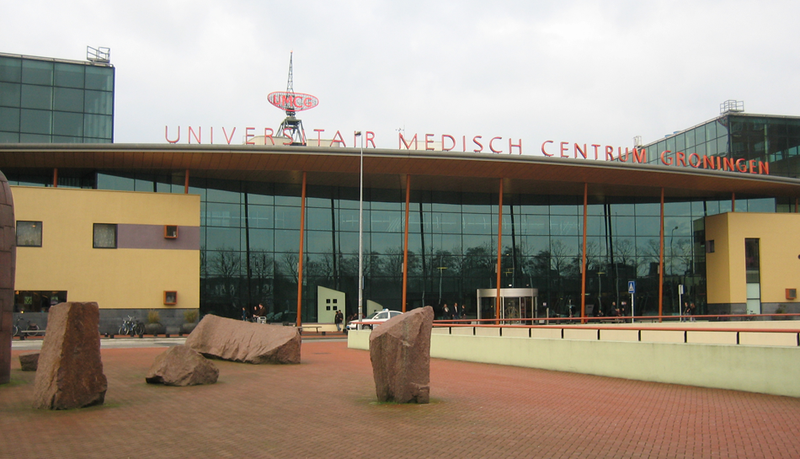
Image: The entrance to UMC Groningen, the largest hospital in The Netherlands (Photo courtesy of Wikimedia Commons).
Siemens Healthcare (Erlangen, Germany) has won contracts from two Dutch university hospitals to supply, implement, and support the Soarian Clinicals hospital information system.
The contracts, with Erasmus University Medical Center (Erasmus MC, Rotterdam, The Netherlands) and University Medical Center Groningen (UMCG; The Netherlands), have a combined value of more than EUR 50 million, representing one of the largest healthcare information technology (IT) contracts awarded to Siemens to date. The contracts for both hospitals have a term of ten years and work on installation is planned to start as early as April 2014, with the project scheduled for clinical operation by the end of 2015. Both customers awarded their contracts simultaneously, as a means of cooperating even more closely using the new software solution.
The Soarian Clinicals hospital information system will be integrated to the electronic patient record (EPR), and will make available patient demographic data, imaging results, laboratory diagnosis, and treatment-related data, all on a single software platform. The system enables hospital staff to have comprehensive access to the latest relevant patient data, all within the confines of preset data protection regulations. The software allows clinical processes to be mapped, optimized, and organized in a paperless fashion, making them more transparent as well as faster and more efficient. This eases the burden of administrative tasks for hospital staff, freeing up more time for patient treatment and care.
The Erasmus MC, affiliated with Erasmus University, is largest and one of the most authoritative scientific university medical centers in Europe. With 1,320 beds, it is the second largest hospital of The Netherlands, only 19 beds behind UMC Groningen, which offers supraregional tertiary care to the northern part of the Netherlands. UMC Groningen employs almost 17,000 people, while the Erasmus MC employs around 11,000 people.
Related Links:
Siemens Healthcare
Erasmus University Medical Center
University Medical Center Groningen
The contracts, with Erasmus University Medical Center (Erasmus MC, Rotterdam, The Netherlands) and University Medical Center Groningen (UMCG; The Netherlands), have a combined value of more than EUR 50 million, representing one of the largest healthcare information technology (IT) contracts awarded to Siemens to date. The contracts for both hospitals have a term of ten years and work on installation is planned to start as early as April 2014, with the project scheduled for clinical operation by the end of 2015. Both customers awarded their contracts simultaneously, as a means of cooperating even more closely using the new software solution.
The Soarian Clinicals hospital information system will be integrated to the electronic patient record (EPR), and will make available patient demographic data, imaging results, laboratory diagnosis, and treatment-related data, all on a single software platform. The system enables hospital staff to have comprehensive access to the latest relevant patient data, all within the confines of preset data protection regulations. The software allows clinical processes to be mapped, optimized, and organized in a paperless fashion, making them more transparent as well as faster and more efficient. This eases the burden of administrative tasks for hospital staff, freeing up more time for patient treatment and care.
The Erasmus MC, affiliated with Erasmus University, is largest and one of the most authoritative scientific university medical centers in Europe. With 1,320 beds, it is the second largest hospital of The Netherlands, only 19 beds behind UMC Groningen, which offers supraregional tertiary care to the northern part of the Netherlands. UMC Groningen employs almost 17,000 people, while the Erasmus MC employs around 11,000 people.
Related Links:
Siemens Healthcare
Erasmus University Medical Center
University Medical Center Groningen
Channels
Artificial Intelligence
view channelCritical Care
view channel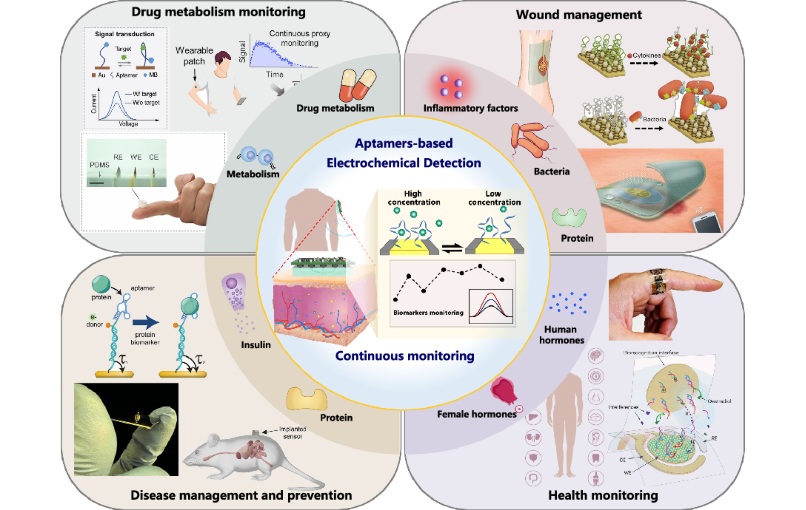
Aptamers Enable Real-Time Biomarker Tracking Without Blood Draws
Continuous monitoring of biomarkers is critical for early disease detection, treatment evaluation, and personalized health management. Yet most clinical tests still rely on invasive, single-point blood... Read more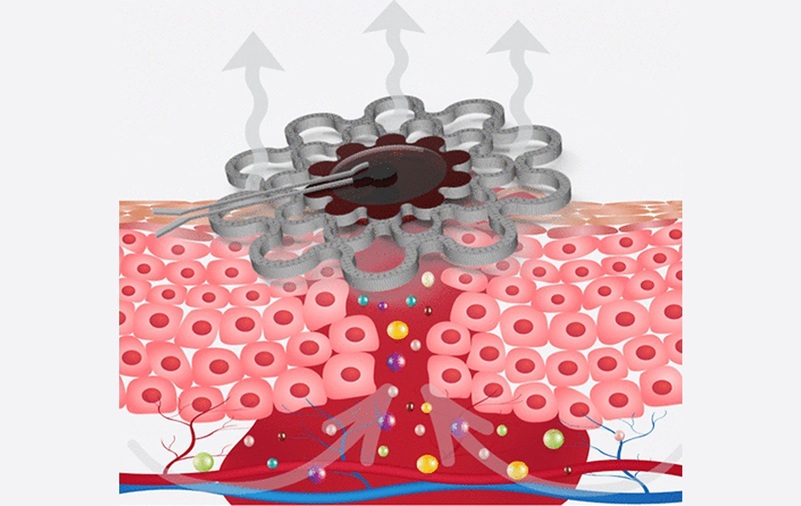
Specialized Dressing with Sensor Monitors pH Levels in Chronic Wounds
Any wound has the potential to become chronic, but the risk is significantly higher in individuals with certain medical conditions. Once a wound becomes chronic, healing slows, complications increase,... Read moreSurgical Techniques
view channel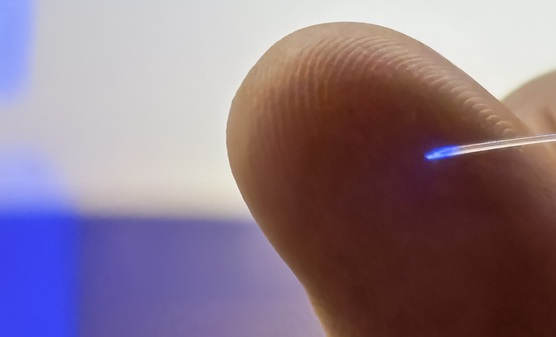
Brain Implant Records Neural Signals and Delivers Precise Medication
Neurological diseases such as epilepsy involve complex interactions across multiple layers of the brain, yet current implants can typically stimulate or record activity from only a single point.... Read moreAI-Based OCT Image Analysis Identifies High-Risk Plaques in Coronary Arteries
Lipid-rich plaques inside coronary arteries are strongly associated with heart attacks and other major cardiac events. While optical coherence tomography (OCT) provides detailed images of vessel structure... Read moreNeural Device Regrows Surrounding Skull After Brain Implantation
Placing electronic implants on the brain typically requires removing a portion of the skull, creating challenges for long-term access and safe closure. Current methods often involve temporarily replacing the skull or securing metal plates, which can lead to complications such as skin erosion and additional surgeries.... Read morePatient Care
view channel
Revolutionary Automatic IV-Line Flushing Device to Enhance Infusion Care
More than 80% of in-hospital patients receive intravenous (IV) therapy. Every dose of IV medicine delivered in a small volume (<250 mL) infusion bag should be followed by subsequent flushing to ensure... Read more
VR Training Tool Combats Contamination of Portable Medical Equipment
Healthcare-associated infections (HAIs) impact one in every 31 patients, cause nearly 100,000 deaths each year, and cost USD 28.4 billion in direct medical expenses. Notably, up to 75% of these infections... Read more
Portable Biosensor Platform to Reduce Hospital-Acquired Infections
Approximately 4 million patients in the European Union acquire healthcare-associated infections (HAIs) or nosocomial infections each year, with around 37,000 deaths directly resulting from these infections,... Read moreFirst-Of-Its-Kind Portable Germicidal Light Technology Disinfects High-Touch Clinical Surfaces in Seconds
Reducing healthcare-acquired infections (HAIs) remains a pressing issue within global healthcare systems. In the United States alone, 1.7 million patients contract HAIs annually, leading to approximately... Read moreHealth IT
view channel
EMR-Based Tool Predicts Graft Failure After Kidney Transplant
Kidney transplantation offers patients with end-stage kidney disease longer survival and better quality of life than dialysis, yet graft failure remains a major challenge. Although a successful transplant... Read more
Printable Molecule-Selective Nanoparticles Enable Mass Production of Wearable Biosensors
The future of medicine is likely to focus on the personalization of healthcare—understanding exactly what an individual requires and delivering the appropriate combination of nutrients, metabolites, and... Read moreBusiness
view channel
Medtronic to Acquire Coronary Artery Medtech Company CathWorks
Medtronic plc (Galway, Ireland) has announced that it will exercise its option to acquire CathWorks (Kfar Saba, Israel), a privately held medical device company, which aims to transform how coronary artery... Read more
Medtronic and Mindray Expand Strategic Partnership to Ambulatory Surgery Centers in the U.S.
Mindray North America and Medtronic have expanded their strategic partnership to bring integrated patient monitoring solutions to ambulatory surgery centers across the United States. The collaboration... Read more
FDA Clearance Expands Robotic Options for Minimally Invasive Heart Surgery
Cardiovascular disease remains the world’s leading cause of death, with nearly 18 million fatalities each year, and more than two million patients undergo open-heart surgery annually, most involving sternotomy.... Read more














